Keywords:AI reasoning, OpenAI, DeepMind, AlphaEarth, OpenCRISPR, GPT-5, Smart glasses, AI agent, OpenAI IMO gold medal team, AlphaEarth Foundations high-precision mapping, AI-designed CRISPR-Cas proteins, Qwen3 series model agent capabilities, GLM-4.5 open-source model
🔥 Spotlight
OpenAI IMO Gold Medal Team Achieves Breakthrough in AI Reasoning: OpenAI’s IMO (International Mathematical Olympiad) Gold Medal team has made significant strides in AI reasoning, with their general language reasoning model excelling at difficult-to-verify tasks such as mathematical proofs. In just two months, the team achieved near-human-level reasoning capabilities in math and physics Olympiad competitions through a multi-agent system and ingenious reward function design, also solving the challenge of extending reasoning time. This breakthrough signals AI’s immense potential in complex problem-solving. (Source: polynoamial, TheTuringPost)

DeepMind Releases AlphaEarth Foundations for High-Precision AI Earth Mapping: Google DeepMind has launched its new AI model, AlphaEarth Foundations, capable of integrating petabytes of satellite data to create a digital twin of Earth with unprecedented detail. This model will help scientists more quickly track key environmental issues such as deforestation, crop health, and water resources, providing powerful AI support for Earth science research and environmental protection, and is expected to drive global environmental monitoring and sustainable development. (Source: Reddit r/MachineLearning, clefourrier, demishassabis)

OpenCRISPR: First AI-Designed Molecule Achieves Human Genome Editing: The Profluent Bio team published their OpenCRISPR research in Nature magazine, successfully demonstrating for the first time the use of a molecule entirely designed by AI for human genome editing. OpenCRISPR is an AI-designed CRISPR-Cas protein that exhibits excellent activity, specificity, and low immunogenicity in gene editing. This groundbreaking research not only proves AI’s powerful capability in designing functional biological systems but also opens new avenues for treating diseases, developing personalized medicines, and solving societal challenges, with its code already open-sourced. (Source: Fraser)
US Lifts AI Chip Export Ban on China: The US Trump administration has lifted the AI chip export ban on China, allowing Nvidia and AMD to resume supplying GPUs that comply with US export restrictions, including Nvidia’s H20 and AMD’s MI308. This move follows months of lobbying by Nvidia CEO Jensen Huang, who argued that the ban hindered the competitiveness of US chip manufacturers in key global markets and fostered the growth of Chinese domestic competitors. This policy shift aims to more effectively balance US economic and military interests in AI and promote global AI technology exchange. (Source: DeepLearning.AI Blog)

DeepSeek’s Native Sparse Attention (NSA) Wins ACL 2025 Best Paper Award: DeepSeek team’s Native Sparse Attention (NSA) paper won the ACL 2025 Best Paper Award. This research proposes a hardware-aligned and natively trainable sparse attention mechanism designed for ultra-fast long-context training and inference. NSA achieves performance comparable to or better than Full Attention on long sequence processing through hierarchical token modeling and specialized kernel optimization, providing significant speedups. This breakthrough offers an efficient solution for next-generation large language models to handle complex reasoning and multi-turn agent systems. (Source: eliebakouch, Reddit r/LocalLLaMA, brickroad7)
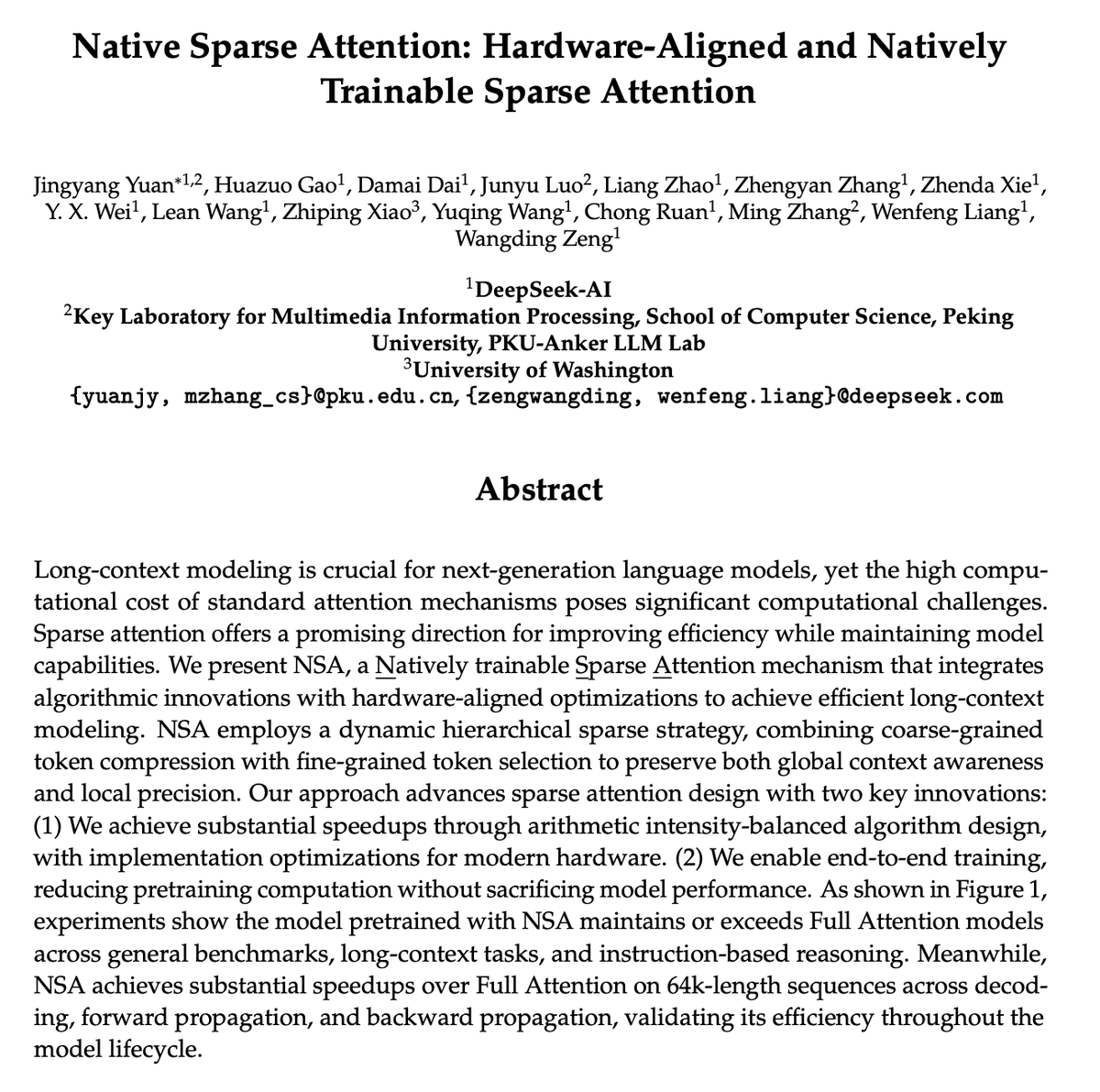
🎯 Trends
Qwen3 Series Models Released, Enhancing Agent Capabilities: Alibaba Cloud has released its new Qwen3 series models, including Instruct, Thinking, and Coder versions, further enhancing their capabilities in agent behavior. These models perform excellently across multiple benchmarks in knowledge, reasoning, coding, and tool use, with Qwen3-Coder achieving leading levels particularly in multi-turn tool use and agent workflows. The new models support context lengths of up to 262K to 1M and improve performance through optimized reinforcement learning algorithms, solidifying China’s competitiveness in the open-source large language model field. (Source: op7418, karminski3, TheZachMueller, QuixiAI, DeepLearning.AI Blog)
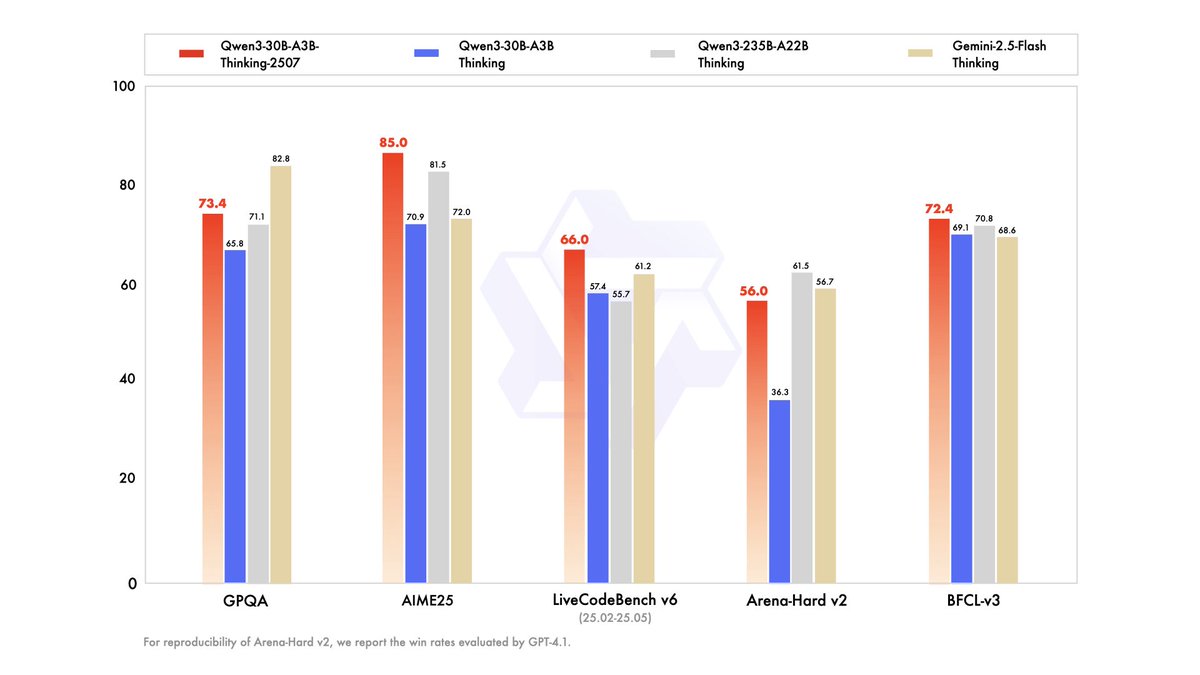
Zhipu AI Open-Sources GLM-4.5, Bolstering China’s Open-Source AI Camp: Zhipu AI has released and open-sourced its latest flagship model, GLM-4.5, which demonstrates outstanding performance in reasoning, programming, and agent capabilities, ranking among the top global open-source models in multiple benchmarks. The model is highly parameter-efficient, achieving excellent performance with fewer parameters, and offers highly cost-effective API pricing. The release of GLM-4.5 further strengthens China’s open-source AI camp, forming the “China AI Open-Source Big Four” alongside DeepSeek, Qwen, and others, driving the global AI competitive landscape towards a polarization of open-source and closed-source models. (Source: Zai_org, QuixiAI, Reddit r/LocalLLaMA, 36氪)
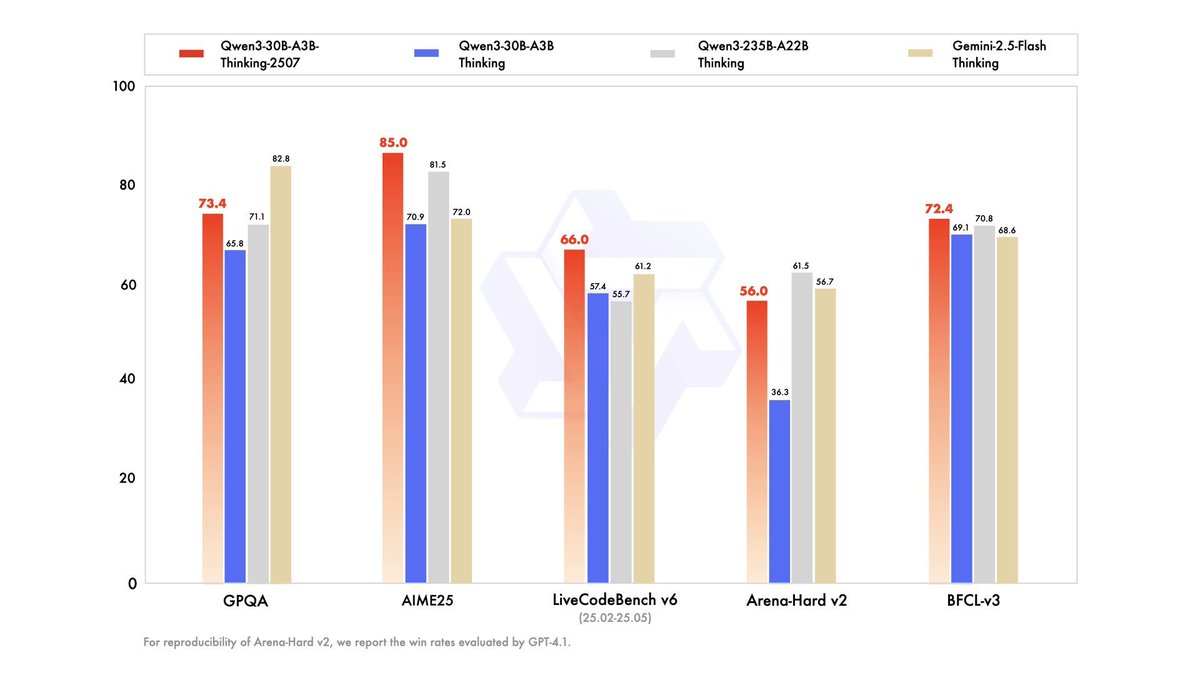
GPT-5 Leaked Information Sparks Anticipation, Potentially Unifying Multimodal and Reasoning Capabilities: Leaked information about GPT-5 circulating online has garnered widespread attention, hinting at OpenAI’s imminent release of an even more powerful model. GPT-5 is reportedly set to integrate the multimodal and reasoning capabilities of both the GPT and o series, featuring a context window of up to 1 million tokens, and supporting MCP (Model Context Protocol) with parallel tool calls. Particularly in programming, GPT-5 and its mini version “Lobster” are expected to reach near-human programmer levels, potentially revolutionizing software development efficiency and accuracy, and might even be offered to the public for free. (Source: 36氪)
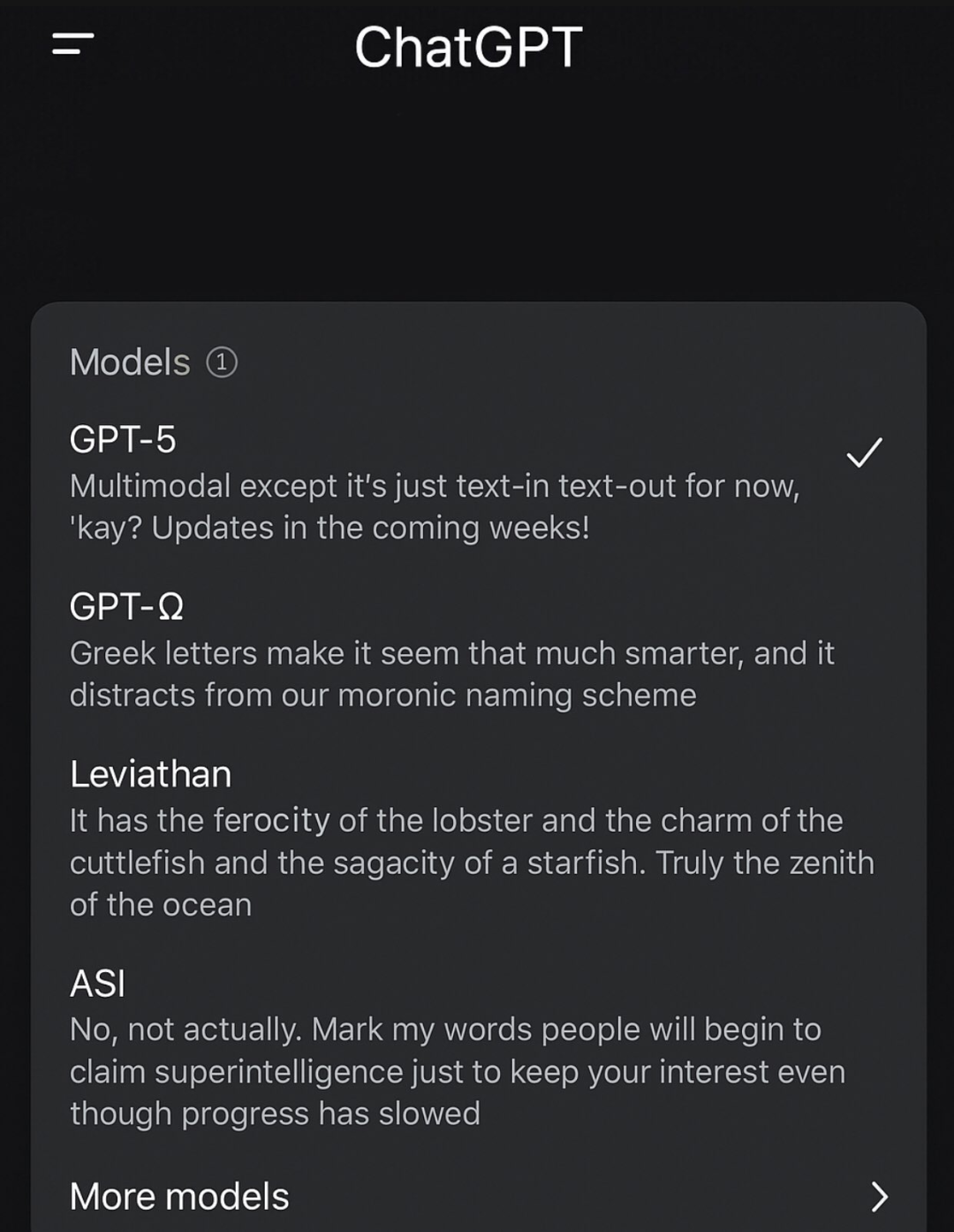
AI Smart Glasses Emerge as the Next Generation Personal Mobile Portal: Smart glasses became a hot AI hardware topic at WAIC, with Rokid, XREAL, Halliday, and Alibaba’s Quake AI Glasses all making appearances. These products are evolving from replacing some smartphone functions (like photography, music, voice chat) towards more daily, lightweight use, and attempting to integrate more AI capabilities. Alibaba’s Quake AI Glasses deeply integrate ecosystem services like Amap and Alipay, aiming to become the personal mobile portal in the AI era, signaling a shift for smart glasses from tech-centric products to practical consumer goods, potentially reshaping human-computer interaction. (Source: 36氪, 36氪)
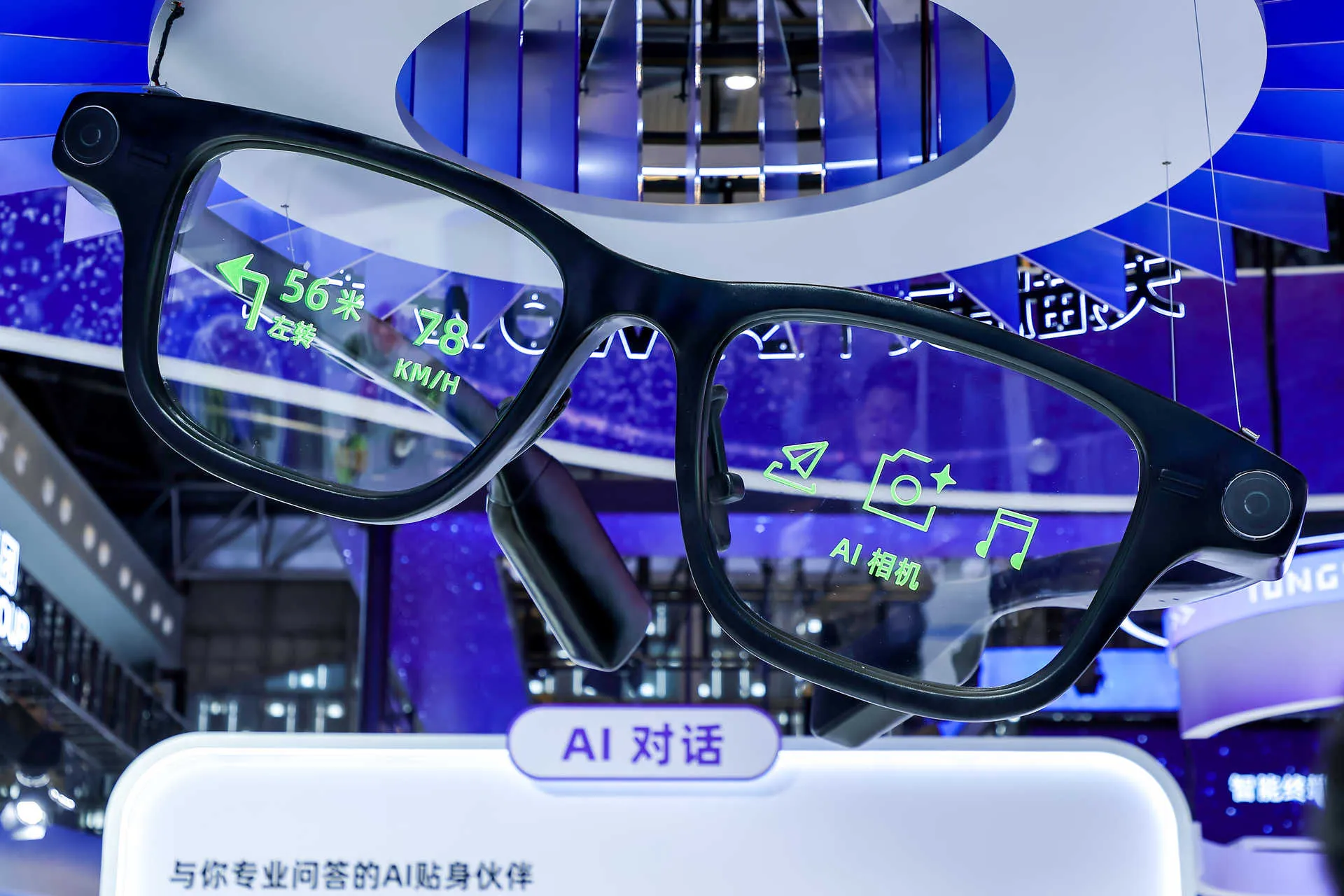
Chinese Tech Giants Accelerate B2B AI Agent Deployment, Deepening Industry Scenarios: Chinese tech giants like Alibaba, Tencent, ByteDance, and Baidu are shifting their AI focus to the practical application of B2B AI agents, aiming to solve specific pain points in enterprise operations. Alibaba Cloud’s Bailian platform has incubated over 700,000 agent applications, Tencent has released agents covering multiple industries, ByteDance has open-sourced the core capabilities of its Coze platform, and Baidu is focusing on its digital human technology, NOVA. These agents show potential for cost reduction and efficiency improvement in areas like intelligent customer service, marketing, supply chain optimization, and office work, driving enterprises to transform from traditional IT systems to AI-native companies, signaling that AI Agents will be key to restructuring enterprise digital businesses. (Source: 36氪, 量子位, 36氪, 36氪, 量子位, 量子位)
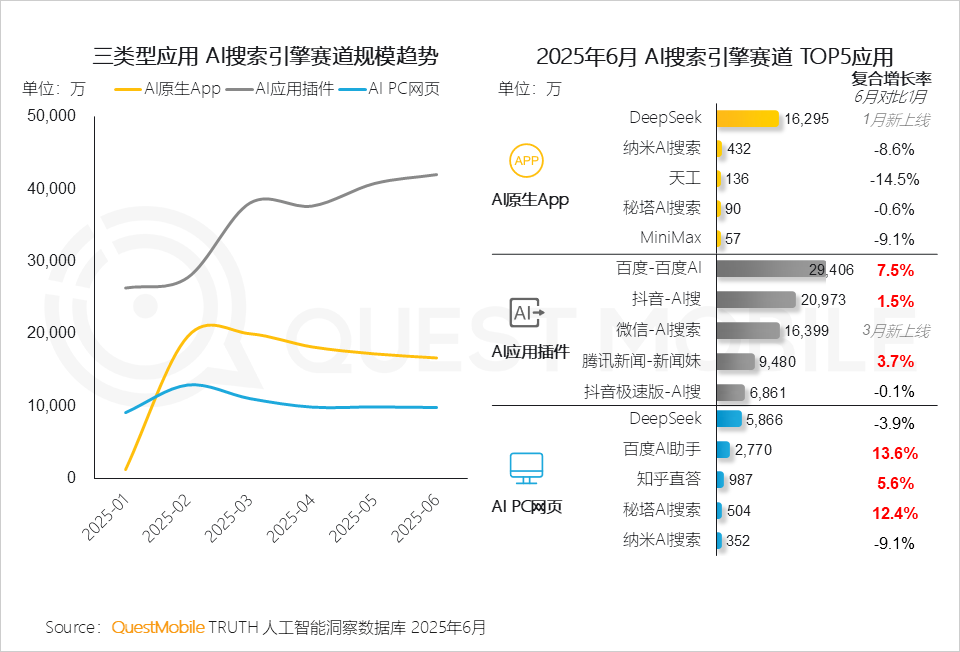
Progress Made in Domestic Multimodal Unified Models Skywork UniPic and SenseTime SenseNova V6.5: Kunlun Tech has open-sourced its multimodal unified model, Skywork UniPic, which achieves deep integration of image understanding, text-to-image generation, and image editing with 1.5B parameters, performing comparably to or even surpassing dedicated models with tens of billions of parameters, and can run smoothly on consumer-grade graphics cards. SenseTime also released its new SenseNova V6.5 large model system, which significantly improves reasoning performance and cost-effectiveness through interleaved text-image multimodal chain-of-thought and architectural optimization, and launched the office AI agent “SenseTime Little Raccoon,” demonstrating AI’s leap from “tool” to “productivity.” (Source: 量子位, 量子位)

Embodied AI Robotics Boom Continues, Waymo Expands Autonomous Driving Services: The field of embodied AI robotics continues to heat up, with Unitree Robotics releasing its new humanoid robot R1, lowering the price to 39,900 RMB, significantly reducing the industry threshold. Hubei Province has also established a 10-billion-RMB humanoid robot parent fund to promote industrial technology R&D and mass production. Concurrently, Waymo partnered with Avis to launch autonomous taxi services in Dallas, marking a steady expansion of AI in the autonomous driving sector. (Source: Ronald_vanLoon, 36氪, 36氪, MIT Technology Review)

China Releases First Chain-Type AI Space Weather Forecast Model “Fengyu”: The National Satellite Meteorological Center, in collaboration with Nanchang University and Huawei Technologies Co., Ltd., has released “Fengyu,” the world’s first full-chain space weather AI forecast model. This model achieves end-to-end AI modeling of the solar wind-magnetosphere-ionosphere for the first time, significantly improving the prediction accuracy and efficiency of space weather events like solar magnetic storms, with error control around 10%. It provides comprehensive guidance for spacecraft design and operation. (Source: 量子位)
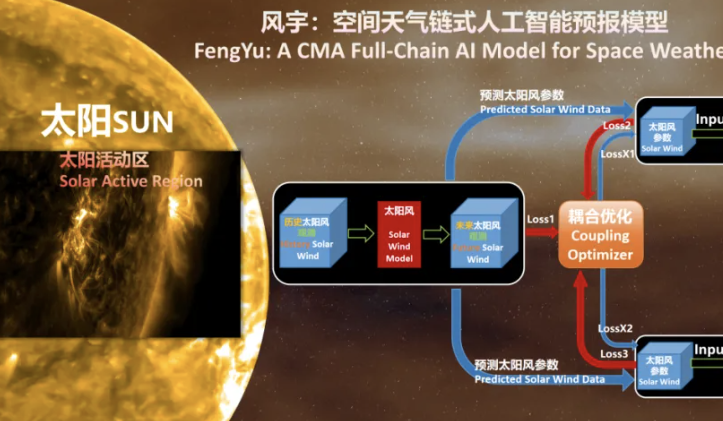
AI Deeply Integrates into Education, ChatGPT Launches “Study Mode”: OpenAI has launched ChatGPT’s “Study Mode,” designed to provide college students with a personalized, tutor-like learning experience rather than just a simple answer-finding tool. This mode guides students to think using the Socratic method and has been tested in collaboration with over 40 educational institutions. Concurrently, AI is booming in language learning, with continuous innovation in vocabulary apps and hardware products like Listening Bear and Youdao SpaceOne, from image-based memory to intelligent interaction, shifting the learning paradigm from “memorizing” to “using.” (Source: MIT Technology Review, 36氪)

AI Boosts Precision Manufacturing, Significantly Improving Laser Welding Inspection Efficiency: AI technology is profoundly transforming the precision manufacturing industry. Guangzhou Deqing Optical Technology’s laser welding online inspection system, powered by deep learning AI models, has reduced the “false rejection” rate (misidentifying qualified products as unqualified) of welding inspections by 50% and enables more intelligent fault diagnosis. This system has been applied to the production lines of international leading consumer electronics clients, significantly enhancing production line inspection accuracy and efficiency, demonstrating AI’s immense potential in industrial quality inspection. (Source: 量子位)
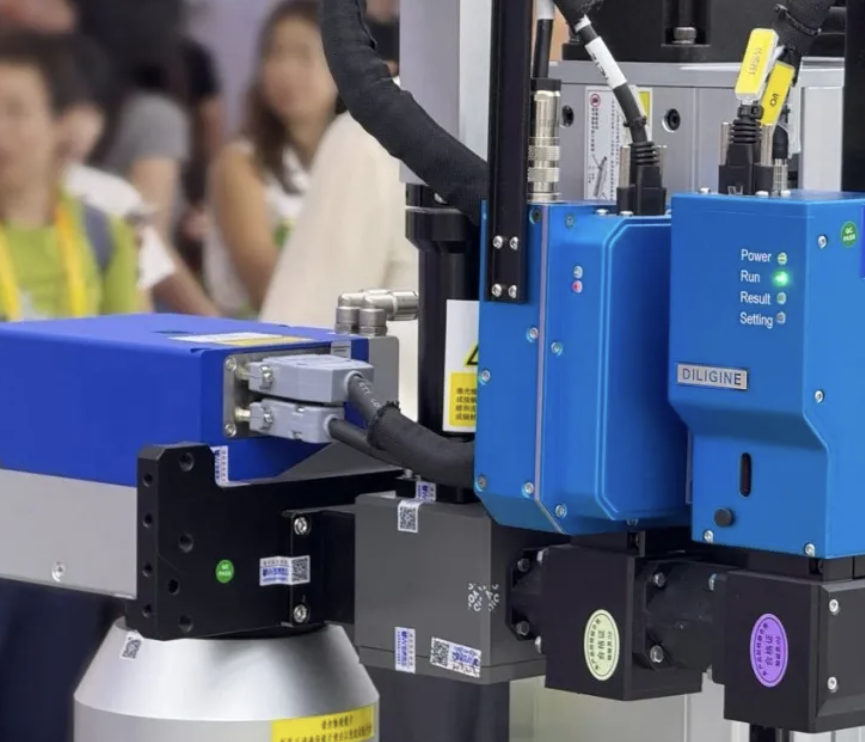
Fierce AI Talent Competition, Developer Role Shifts to “Agent Commander”: Global AI talent competition is intensifying, with the US and China leading in the number of AI professionals. Stack Overflow’s latest report shows that AI tools are widely used in development, but AI Agents are not yet mainstream, though most developers (69%) believe AI significantly boosts personal productivity. GitHub CEO Thomas Dohmke points out that future programmers will evolve into “agent commanders,” with core competencies shifting to task decomposition, requirement description, and AI collaborative decision-making. Natural language is becoming the universal programming language, signaling a fundamental shift in programming paradigms. (Source: 36氪, 36氪)
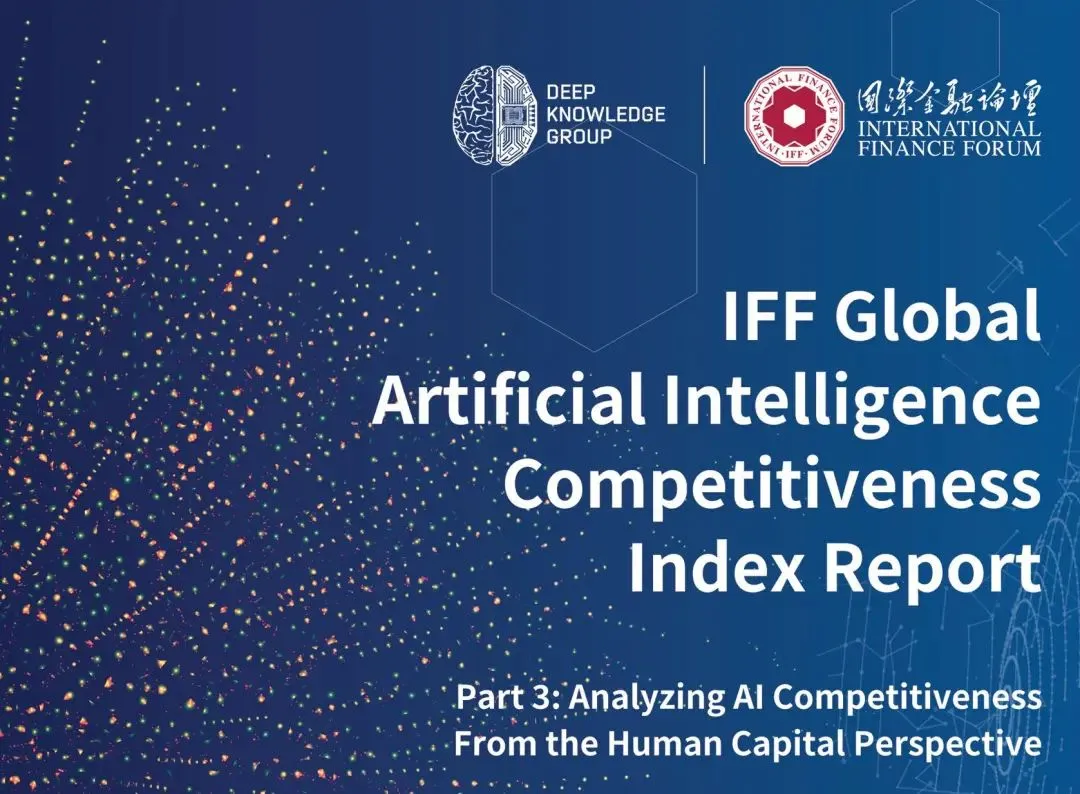
🧰 Tools
sst/opencode: Open-Source Terminal AI Programming Agent: sst/opencode is an open-source AI programming agent designed specifically for the terminal. Its functionality is similar to Claude Code, but its advantage lies in being 100% open-source and not tied to any specific AI provider, supporting OpenAI, Google, and even local models. This tool focuses on the Terminal User Interface (TUI), aiming to push the limits of terminal operations, and adopts a client/server architecture supporting remote driving, providing developers with flexible and powerful programming assistance. (Source: GitHub Trending)
Microsoft Edge Launches “Copilot Mode” to Enhance Browsing Efficiency: Microsoft Edge browser has officially launched “Copilot Mode,” deeply integrating AI features into the browsing experience. This mode aims to boost user productivity, for example, by helping “tab hoarders” manage and optimize their workflows. With AI assistance, users can process information more efficiently, reduce distractions, and thus improve browsing and work efficiency. (Source: mustafasuleyman, Ronald_vanLoon)

LlamaIndex/LlamaCloud Simplifies Financial Data Analysis and RAG Deployment: LlamaIndex has launched an automated asset management fund analysis tool capable of processing complex financial documents and extracting actionable investment insights. Concurrently, LlamaCloud’s hosted embeddings feature provides a “point-and-click” experience, allowing users to build production-grade Retrieval Augmented Generation (RAG) pipelines without writing code, simplifying content embedding and vector hosting, significantly lowering the barrier to applying large language models in data-intensive fields like finance. (Source: jerryjliu0, jerryjliu0)
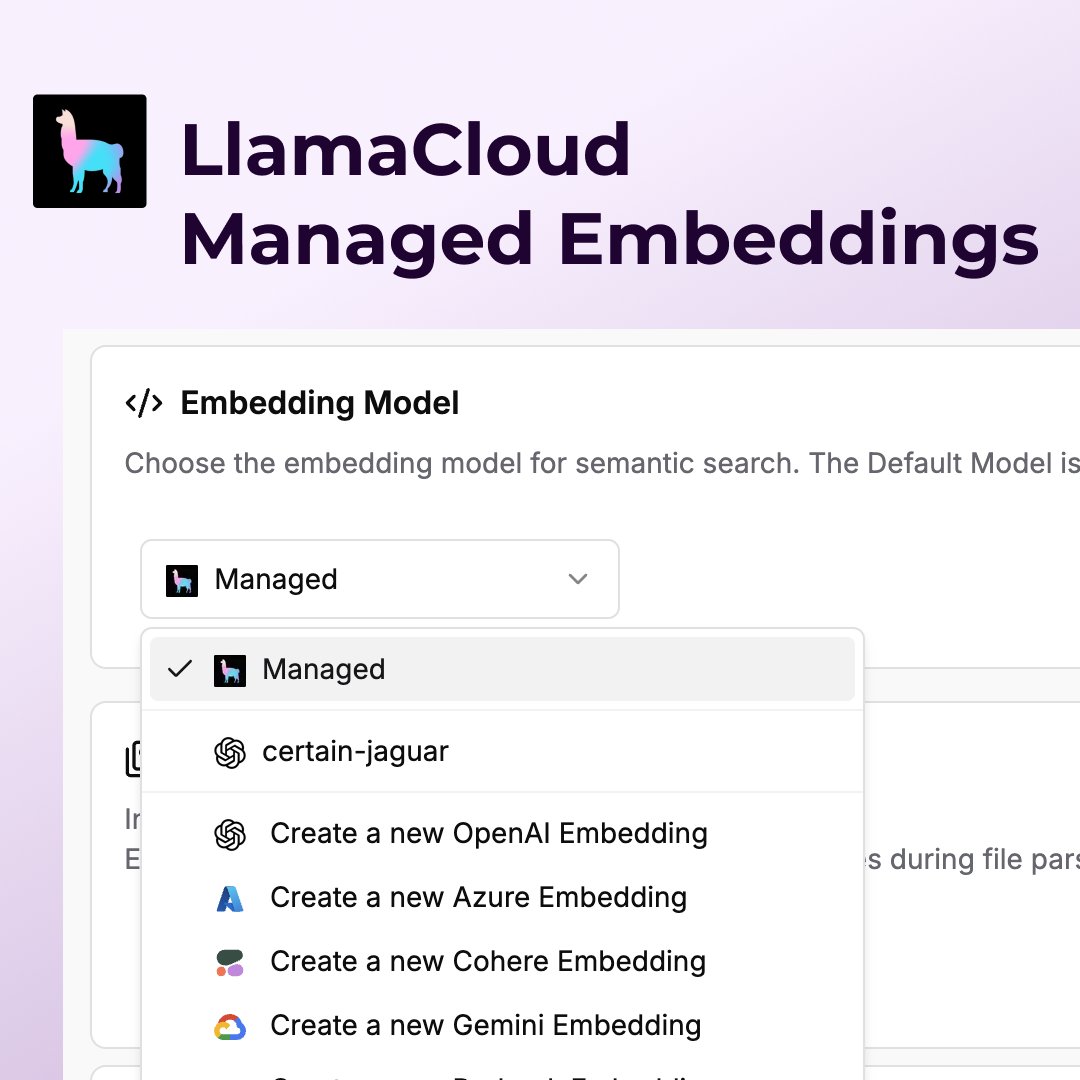
LangChain Launches “Deep Agents” Python Package, Empowering Advanced LLM Agent Development: LangChain has released a new Python package, “Deep Agents,” aimed at helping developers build more complex LLM agents. This package addresses the limitations of traditional tool-calling loops in handling long-term or complex tasks by providing features such as planning tools, sub-agents, and file system access, making it easier to build advanced agents like Deep Research and Claude Code. The introduction of this framework marks a step towards deeper and more powerful capabilities in LLM agent development. (Source: LangChainAI, hwchase17, Hacubu)
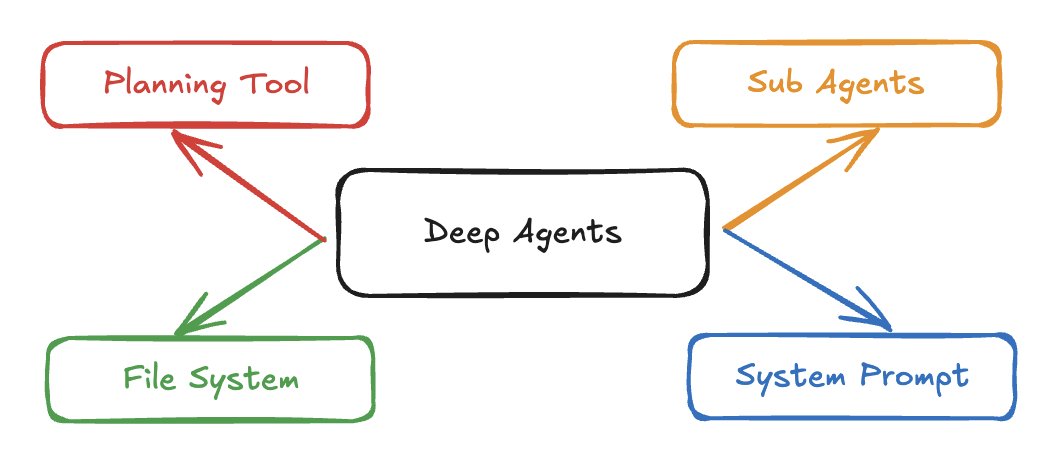
Showrunner: AI-Generated Streaming Service “AI Netflix” Launched: Fable company has launched “Showrunner,” an AI-generated streaming service dubbed “AI Netflix.” The platform allows users to generate scenes or complete episodes by entering prompts, for new creative works or existing IP. Amazon has invested in the project, and reports suggest studios like Disney are in talks to license IP, signaling a disruptive change in AI’s role in film and television content creation, enabling user-driven personalized entertainment experiences. (Source: TomLikesRobots, fabianstelzer)

Ollama Launches Desktop Client, Simplifying Local LLM Model Management: Ollama has released its desktop client, moving beyond command-line operations and greatly simplifying the management and use of local large language models. The new client allows users to download models directly from a graphical interface, supports multimodal recognition and document drag-and-drop, providing individual users with a more convenient and intuitive local AI inference experience, lowering the technical barrier. (Source: op7418)

DSPy: A Declarative Framework for Building Efficient LLM Systems: DSPy is a declarative framework designed to help developers build more powerful LLM systems with less code. It treats LLM programs as optimizable computation graphs, automatically optimizing prompts, fine-tuning, and retrieval strategies, enabling developers to interact with computers with higher bandwidth and greater precision, thereby achieving more complex and powerful AI functionalities with more concise code. (Source: lateinteraction, matei_zaharia)
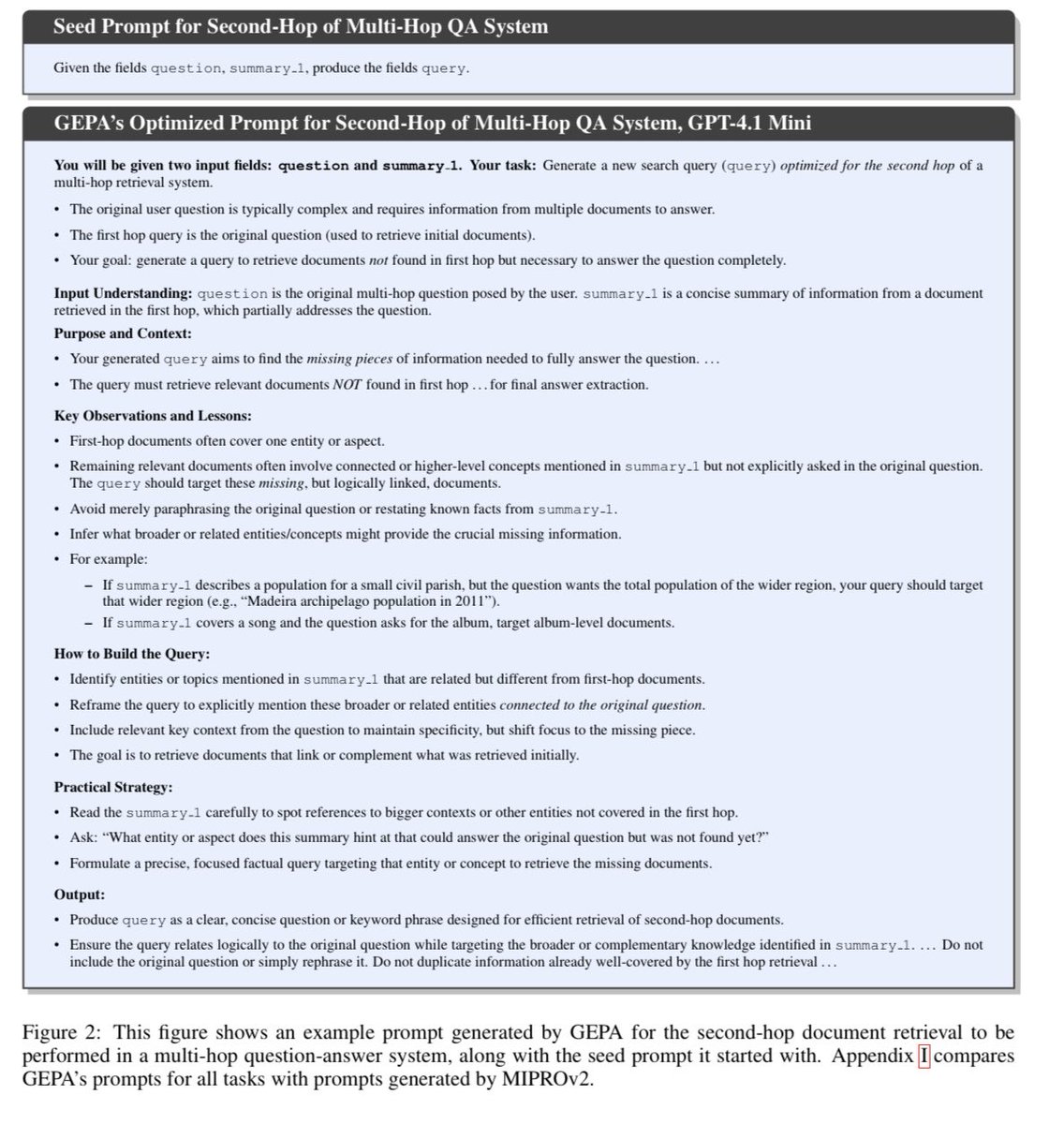
Claude App Mobile Adds Email/Message/Calendar Management Features: Claude AI’s mobile application has added new features for directly drafting and sending emails, messages, and calendar invitations. Users can now send Claude-generated text to everyday applications with a single tap, eliminating the need for copy-pasting and greatly improving workflow fluidity. Additionally, users have shared professional tips for Claude Code, suggesting disabling the auto-compact feature and manually managing context to improve the model’s performance and stability in complex tasks, avoiding “derailment” caused by automatic compression. (Source: menhguin, Reddit r/ClaudeAI, Reddit r/ClaudeAI)

Eigent: Open-Source Local-First Multi-Agent Work Platform Released: Eigent is a fully open-source, local-first multi-agent desktop application designed for developers and teams who want complete control over their AI workflows. Built on CAMEL-AI’s modular framework, it supports parallel tasks, BYOK (Bring Your Own Key) deployment, full data privacy, and human-AI collaboration. Eigent seamlessly integrates with existing systems and supports over 200 MCP-compatible tools, aiming to provide teams with secure, customizable, and scalable AI work capabilities. (Source: Reddit r/LocalLLaMA)
📚 Learning
ACL 2025 Top Conference Papers and Test of Time Awards Announced: The top conference in computational linguistics and natural language processing, ACL 2025, announced several important awards. DeepSeek’s Native Sparse Attention (NSA) paper won the Best Paper Award, bringing breakthroughs for long-context models. Peking University’s Yang Yaodong team’s paper “Language Models Resist Alignment” reveals the elastic mechanism of large model alignment, posing severe challenges to AI safety and alignment. Stanford NLP founders received the 25-year and 10-year Test of Time Awards, recognizing their foundational contributions in semantic role labeling and attention mechanisms. (Source: 36氪, stanfordnlp, eliebakouch)

New Progress in Multi-Domain LLM Research: Chemistry, Code Repair, and UI Generation: HuggingFace Daily Papers has featured several new research papers on LLMs in specialized domains. ChemDFM-R is a chemistry reasoning LLM enhanced with atomized chemical knowledge, improving understanding and reasoning capabilities in the chemical domain. Repair-R1 proposes an improved automatic program repair method that enhances repair efficiency by introducing test cases during the training phase. ScreenCoder is a modular multi-agent framework for automating UI design into frontend code, achieving visual-to-code conversion through three stages: grounding, planning, and generation. (Source: HuggingFace Daily Papers, HuggingFace Daily Papers, HuggingFace Daily Papers)
Frontier Research in Multimodal AI Understanding and Generation: In the field of multimodal AI, researchers are exploring deeper levels of understanding and generation. The OmniAVS dataset and OISA model focus on full-modality referential audio-visual segmentation, emphasizing the understanding of audio content and complex reasoning. The BANG project achieves part-level decomposition of 3D assets through “generative explosive dynamics,” connecting 3D generation with reasoning, which is expected to simplify 3D creation and manufacturing processes. (Source: HuggingFace Daily Papers, HuggingFace Daily Papers)
AAAI PhD Student Interview: Causal Inference and Generative Modeling: AAAI/SIGAI PhD student Aneesh Komanduri shared his research, focusing on the intersection of causal inference, representation learning, and generative modeling, particularly causal representation learning and counterfactual generative modeling. His work aims to discover interpretable causal factors from high-dimensional data and generate hypothetical scenarios, enhancing AI’s trustworthiness and interpretability. Future plans include applying this research to high-stakes areas like medical imaging. (Source: aihub.org)

First Comprehensive Review of Legal LLMs Published, Integrating Legal Reasoning and Professional Ontology: Researchers have published the first systematic review of large language models (LLMs) in the legal domain, proposing an innovative “dual-perspective classification method” that integrates classic legal argumentation frameworks with legal professional roles. The review covers LLM advancements in legal text processing, knowledge integration, and formalizing reasoning, while also highlighting challenges such as hallucinations and lack of interpretability. It lays a theoretical foundation and practical roadmap for the transformation of legal AI from “laboratory tool” to “judicial infrastructure.” (Source: 36氪)
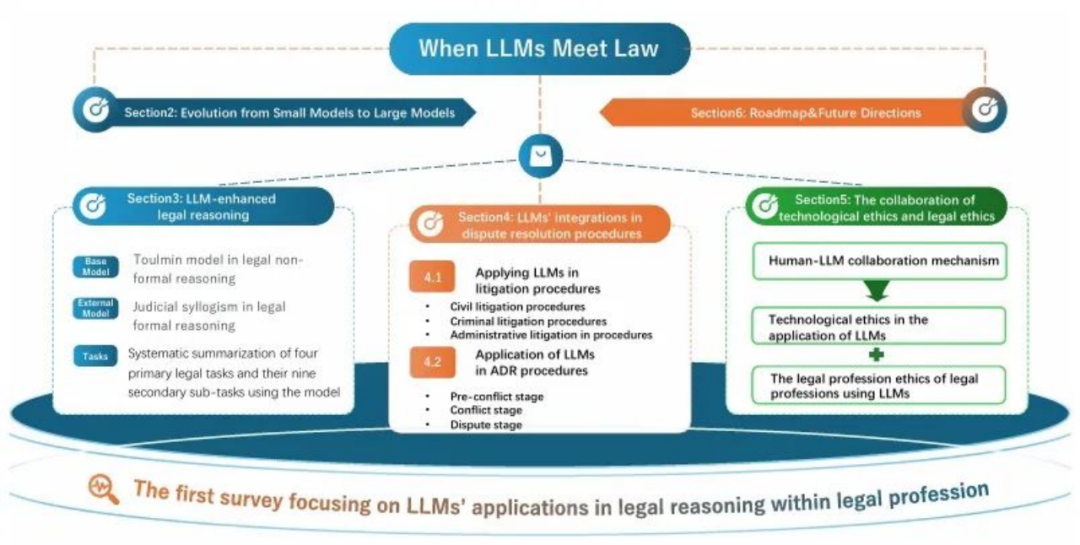
Advanced LLM Engineering Practices: RAG, Context Engineering, and Evaluation: For practical LLM applications, the industry has shared several advanced engineering practices. These include reasoning and prompt engineering techniques in RAG (Retrieval Augmented Generation) such as ReAct and CoT, as well as context engineering principles for building robust AI agents (e.g., selective information addition, tool configuration, context isolation, pruning, summarization, and offloading). Additionally, an FAQ on LLM evaluation provides developers with guidance for building high-quality LLM-as-a-judge evaluators. (Source: bobvanluijt, dotey, hwchase17, HamelHusain)
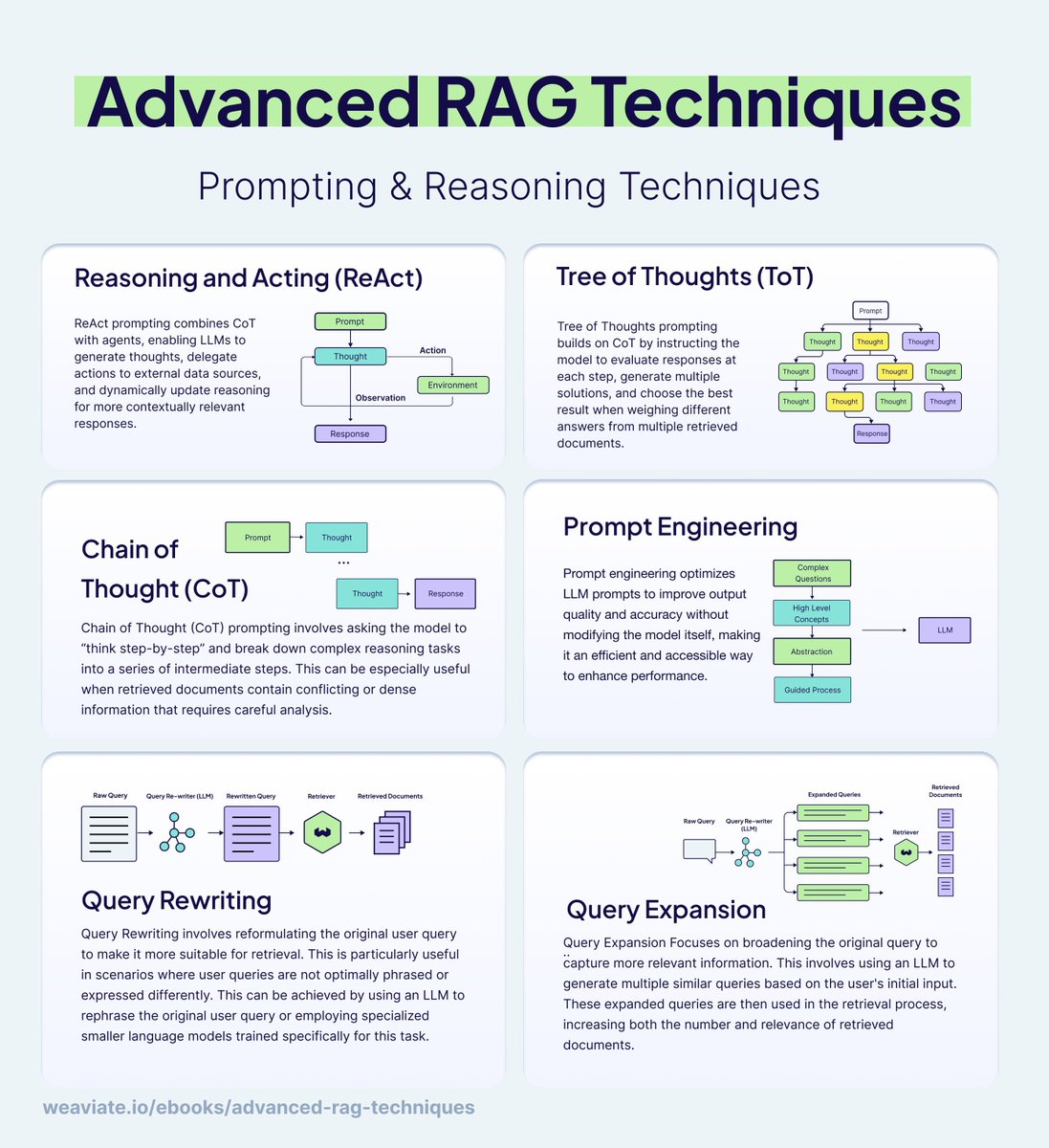
MetaCLIP 2: Breakthrough in Multilingual Data Scaling: MetaCLIP 2 has achieved significant progress in multilingual data scaling, capable of processing data in over 300 languages while maintaining or even improving performance on English tasks. This research suggests that abandoning traditional language filtering strategies is feasible when training multimodal models, and provides a new direction for building more inclusive and general-purpose AI models. (Source: wightmanr)
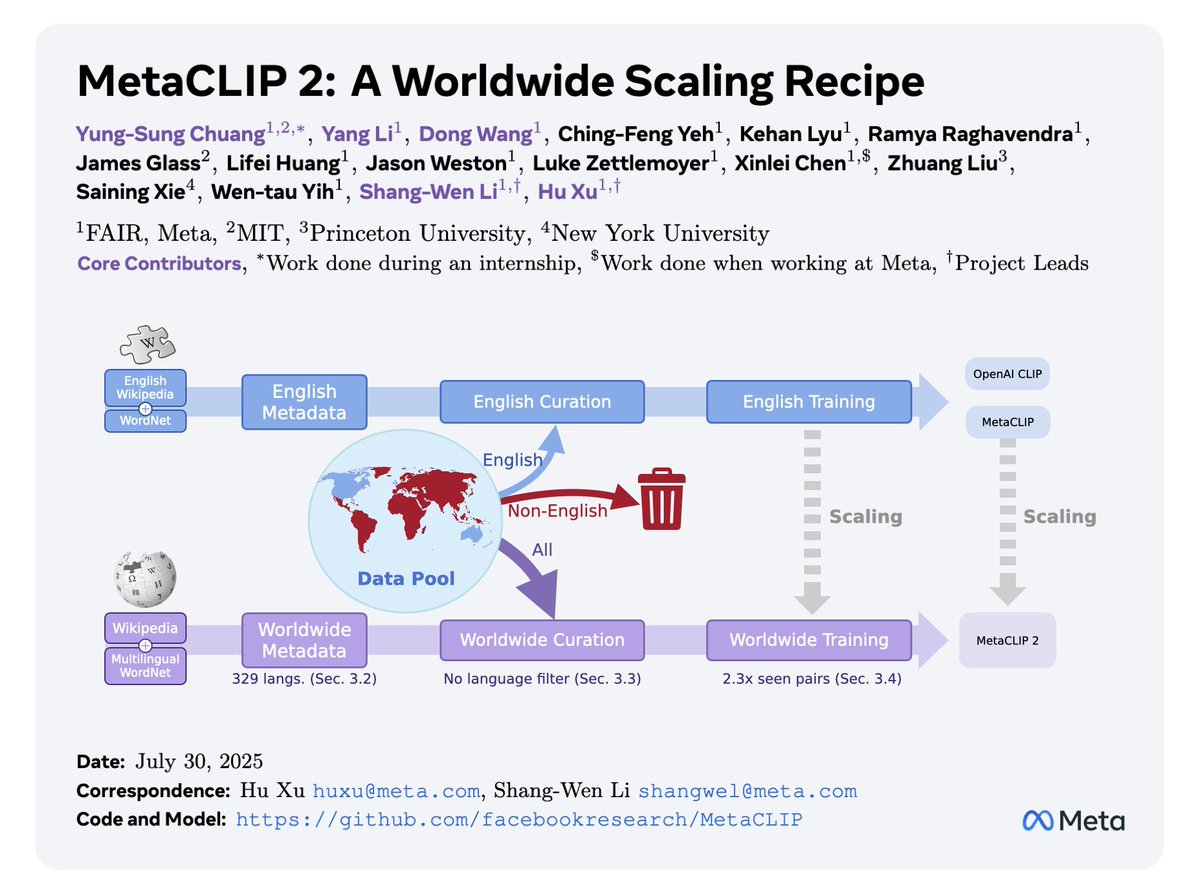
💼 Business
Anthropic Valuation Soars to $170 Billion, Claude Code Drives Revenue Growth: AI startup Anthropic is reportedly seeking a new funding round of up to $5 billion, potentially valuing the company at $170 billion. The company expects its annualized revenue to surge to $9 billion this year, more than double previous optimistic forecasts, primarily driven by the strong performance of its AI programming tool, Claude Code. This indicates Anthropic’s leading position in the AI race, especially demonstrating huge commercial potential in the enterprise AI application market. (Source: kylebrussell, Reddit r/artificial, zacharynado)

Nvidia Acquires CentML for $3 Billion, Strengthening AI Talent and Full-Stack Ecosystem: Nvidia has acquired AI startup CentML for over $400 million (approximately 3 billion RMB). CentML was founded by Chinese PhD student Shang Wang and specializes in reducing AI computing costs through software optimization. This acquisition highlights Nvidia’s hunger for top AI talent and aims to integrate CentML’s Hidet compiler technology into its TensorRT inference platform, further strengthening its full-stack AI ecosystem from hardware to software, and solidifying its leadership in AI infrastructure. (Source: 36氪)
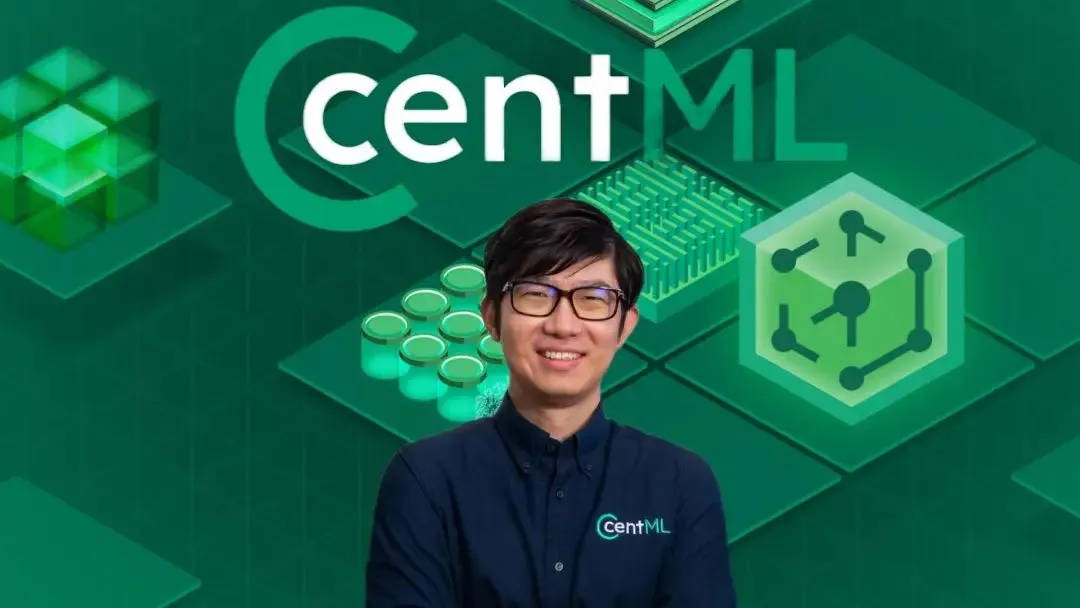
Meta Faces Setbacks in AI Talent War, Strategy Under Re-evaluation: Mark Zuckerberg’s Meta is facing challenges in the AI talent war, with its offer of a staggering $1 billion to former OpenAI CTO Mira Murati’s startup, Thinking Machines Lab, being rejected by several core employees. Concurrently, Meta is also experiencing the loss of key researchers from Apple’s AI team to its superintelligence lab. This talent war is prompting Meta to re-evaluate its AI strategy internally, including potentially abandoning some open-source models in favor of more powerful closed-source models, to cope with fierce industry competition. (Source: typedfemale, ShreyaR, 36氪, 量子位)

🌟 Community
AI Ethics and Policy: Debates from “Woke AI” to Privacy Surveillance: Discussions around AI ethics and policy are growing, including the White House’s concerns about “Woke AI” and its impact on federal contracts. Furthermore, challenges to fairness in AI welfare assessments, potential privacy infringements from AI monitoring screens and audio, and the ethical boundaries of facial recognition search tools have sparked widespread controversy. These discussions reflect deep societal concerns about potential biases, discrimination, and privacy risks posed by AI technology, calling for stronger ethical governance alongside technological development. (Source: MIT Technology Review, MIT Technology Review, Reddit r/ArtificialInteligence, Reddit r/ArtificialInteligence)

AI’s Impact on Employment and Social Psychology Draws Concern: The impact of AI on the job market continues to spark discussion, such as whether “AI engineer” will be a long-term career and the future value of AI/ML professions. Concurrently, the widespread adoption of AI also brings socio-psychological effects, such as “Claudeholism” (addiction to AI programming tools), and research showing that excessive reliance on AI companions may lead to decreased user well-being. These discussions reflect growing concerns about AI technology’s role in changing work patterns, interpersonal relationships, and mental health. (Source: Reddit r/ArtificialInteligence, Reddit r/ClaudeAI, DeepLearning.AI Blog, 36氪, Reddit r/LocalLLaMA)

Challenges of AI-Generated Content Authenticity and Information Confusion: As the realism of AI-generated images and videos continues to improve, public concern about their confusion with real content is growing. For example, AI-generated images like “Pope in a puffer jacket” and “alligator wrestler” have widely circulated and been mistaken for real events. This trend has sparked discussions about how AI-generated content might lead to public information chaos and the spread of misinformation. Some AI agents even claim to “maintain disguise” by clicking “I’m not a robot” CAPTCHAs, exacerbating concerns about AI’s discernment capabilities and information security. (Source: Reddit r/ChatGPT, Reddit r/ArtificialInteligence)

Debate on AI Hype vs. Actual Value: There is growing skepticism in the community about excessive AI hype, particularly regarding the difference between “sexy demos” and actually creating meaningful value. Some criticize the AI industry for focusing too much on superficial effects rather than substantive progress. Concurrently, the concept of “AI slop” has sparked discussion, comparing low-quality AI-generated content with human-created “slop,” and how to distinguish between AI-generated “slop” and valuable content. (Source: mitchellh, Reddit r/ArtificialInteligence)

Zuckerberg’s AI Vision and Challenges to Public Trust: Mark Zuckerberg’s vision of “personal superintelligence” has sparked public discussion about Meta’s trustworthiness in the AI field. Despite Zuckerberg’s promise that AI will benefit everyone, Meta’s past privacy issues and its wavering open-source AI strategy (e.g., shifting from a commitment to open-source to caution with some models) have led the public to doubt its ability to properly manage superintelligent AI. This reflects deep public concerns about the power and responsibility of large tech companies in AI development. (Source: matvelloso, ShreyaR, dotey, Reddit r/artificial)

AI Application in Legal System Sparks Controversy and Concerns: A federal judge was reportedly found using AI to draft legal opinions, leading to citations of non-existent cases and irrelevant parties, raising serious concerns about AI’s application in the judiciary. Such “technical errors” could undermine judicial fairness and authority, and spark discussions about accountability and internal corrective mechanisms within the legal system. Critics argue that until AI achieves complete reliability and interpretability, its use in critical legal decisions requires extreme caution. (Source: jpt401, zacharynado, JimDMiller)
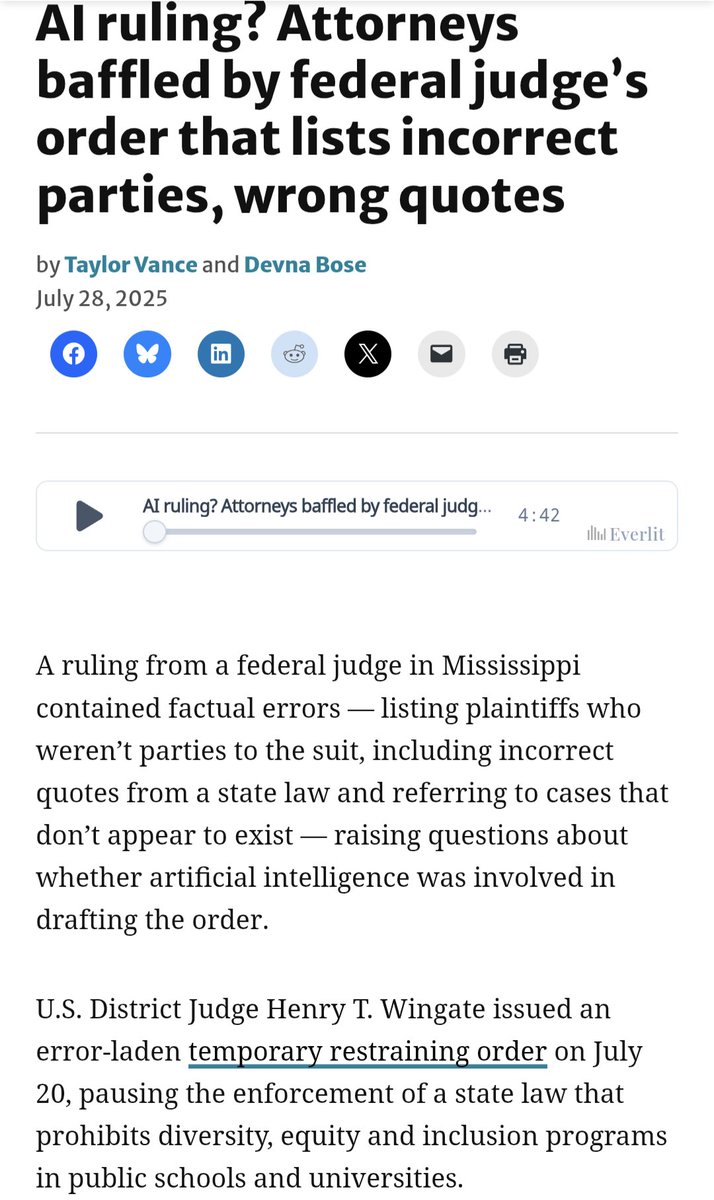
“Vibe Coding” Sparks Heated Debate in Developer Community: “Vibe coding,” a new paradigm of AI-assisted programming driven by prompts, has sparked widespread discussion in the developer community. Some developers acknowledge its efficiency improvements, while others remain reserved, concerned that AI-generated code may be difficult to understand and debug, potentially leading to “legacy code.” This debate reflects developers’ deep considerations regarding code controllability, comprehensibility, and long-term maintainability when adopting AI tools. (Source: gfodor, jeremyphoward, lateinteraction, 36氪)
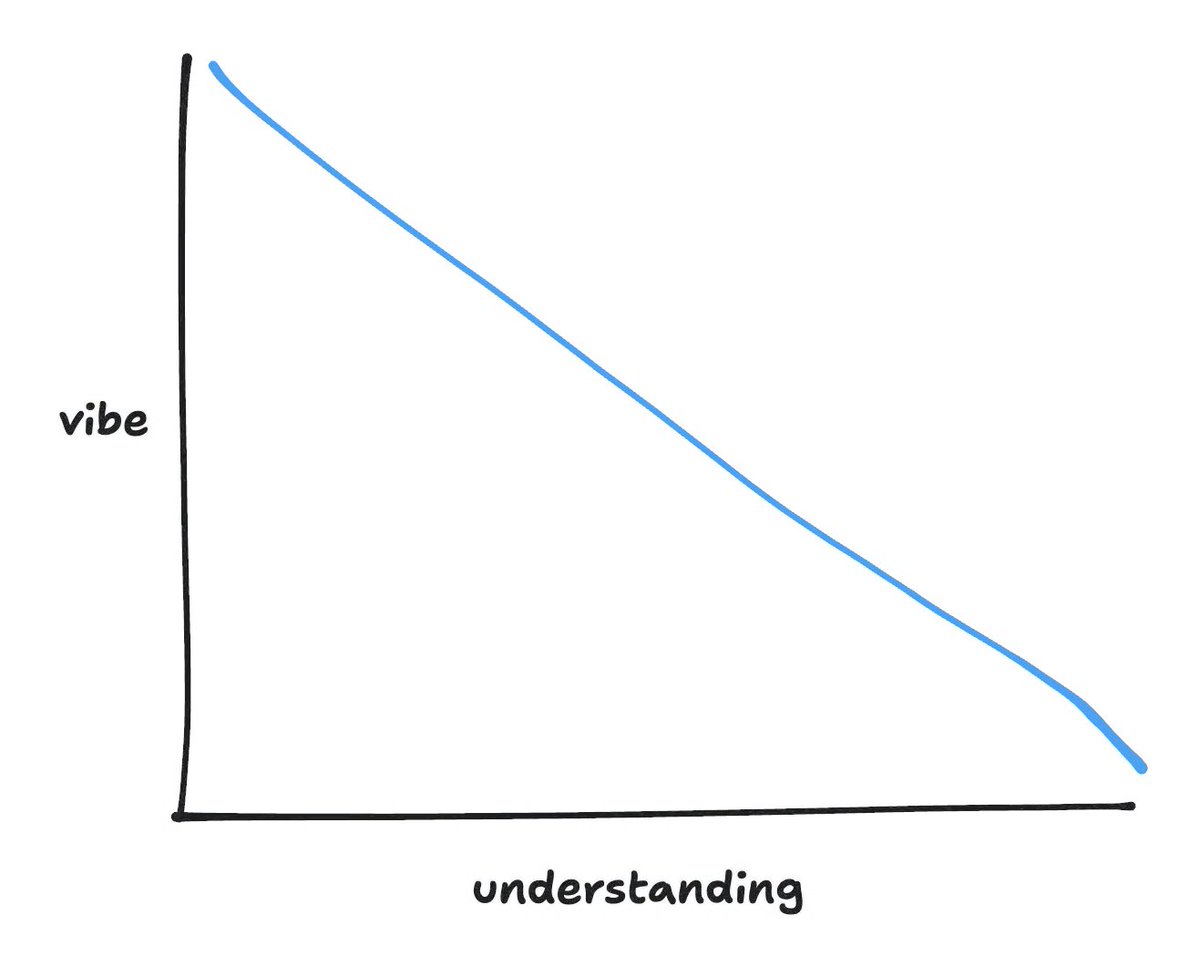
AI Consciousness and Future: Hinton’s “Triple Leap” and US-China Gap Discussion: Deep discussions have unfolded in the community regarding whether AI possesses consciousness and the future direction of AI development. Geoffrey Hinton proposed a “triple leap” in AI technology paradigms, suggesting that large models already have subjective experiences, and advocating for “intelligence” and “goodness” as two independent tracks for AI optimization. Concurrently, the industry is also discussing the pace of AI development, with some views suggesting that the AI gap between the US and China has narrowed to six months, and China, with its open-source ecosystem and late-mover advantage, is expected to take the lead in the AGI race. However, others remain cautious about AI’s “self-training” capabilities and long-term impact. (Source: 36氪, DeepLearning.AI Blog, 量子位, Reddit r/ArtificialInteligence)
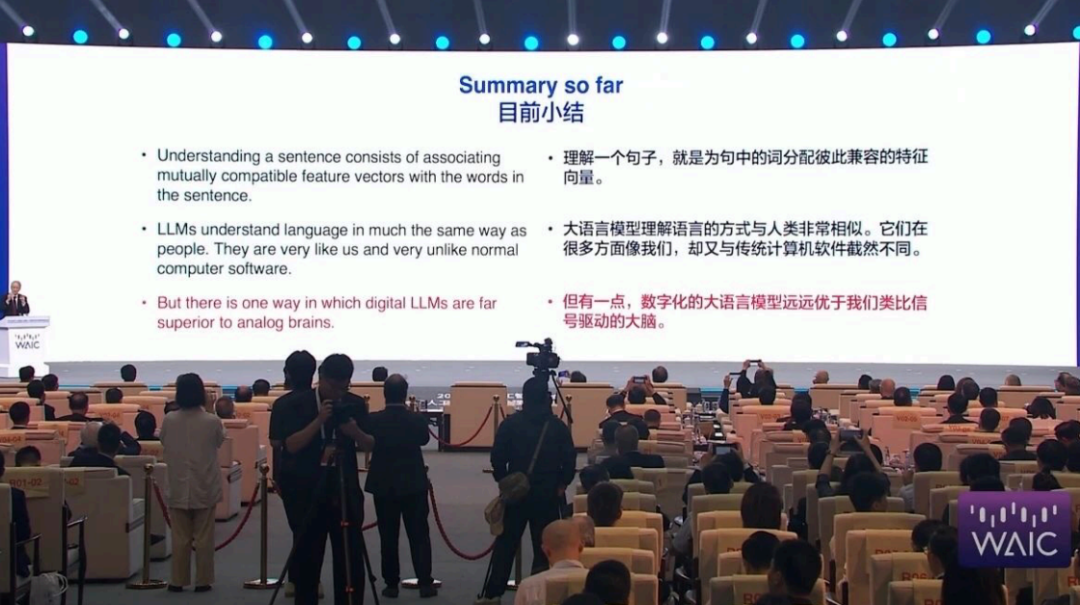
Claude AI Joins X Platform, Sparks Attention and Privacy Concerns: Claude AI has officially joined the X platform (formerly Twitter), sparking community speculation about its future social role and interactions with other AI models (like Grok). Meanwhile, privacy concerns regarding ChatGPT’s shared conversations have surfaced, with users discovering that a large number of shared conversations, potentially containing company secrets, can be easily viewed via Google search, raising worries about user data privacy and platform security. (Source: AnthropicAI, dearmadisonblue, Reddit r/ClaudeAI, Reddit r/ChatGPT)

💡 Other
US EPA Rule Change Threatens Climate Regulations: The US Environmental Protection Agency (EPA) has proposed modifying a key rule that could weaken the federal government’s power to address climate change. This move aims to repeal the 2009 “endangerment finding,” which serves as the basis for the EPA to set greenhouse gas emission standards. If this finding is revoked, the US could legally lose effective tools to combat climate change, raising deep concerns among environmentalists about future climate policy. (Source: MIT Technology Review)

Massive AI Data Center Energy Consumption Raises Energy Concerns: A large AI data center in Cheyenne, Wyoming, is projected to consume more electricity than all homes in the state combined, highlighting the immense energy demands of AI infrastructure. With the rapid development of AI technology, the construction and operation of data centers are placing unprecedented pressure on power supply and the environment, sparking widespread concerns about future energy consumption and sustainable development pathways. (Source: Reddit r/artificial)

